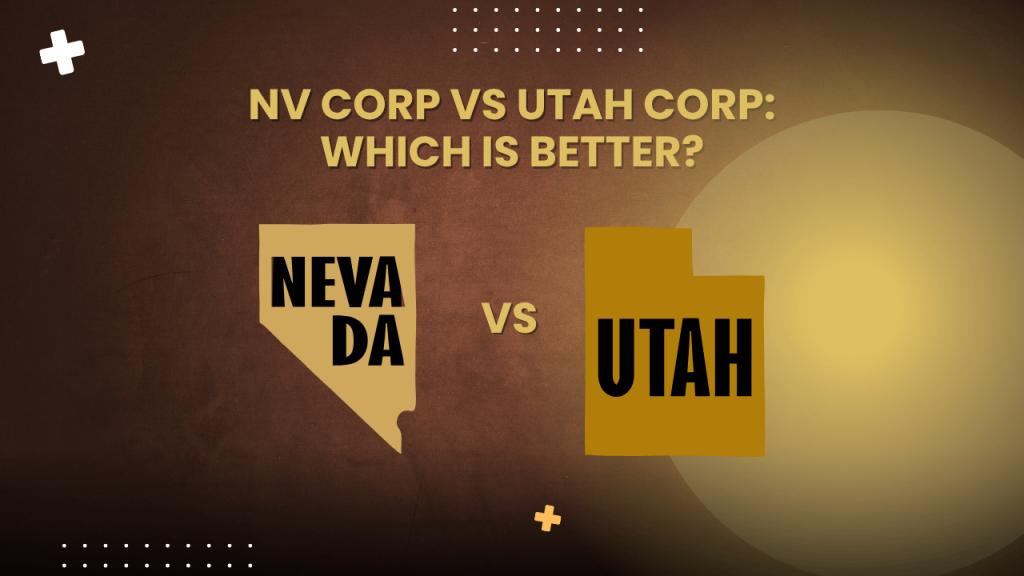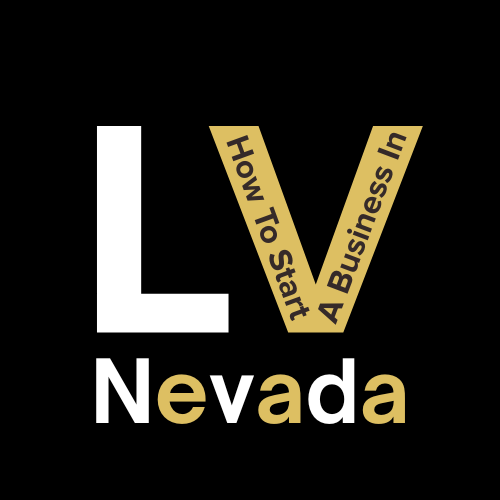
So you’re about to start a business and thinking: Nv Corp vs Utah Corp, Which is better?
“Should I form my corporation in Nevada… or Utah?”
Great question.
If you get it wrong, it could cost you thousands in taxes, compliance fees, and legal headaches.
If you get it right, you’ll protect your assets, lower your tax bill, and sleep better at night.
I’m going to break it all down. No fluff, just the facts.
Quick Answer: Nevada Wins on Privacy & Taxes, Utah Wins on Cost & Simplicity
But here’s where it gets tricky…
If you do business in Utah, forming in Nevada is usually a waste of time and money.
So let’s break this down, one battle at a time.
1. Corporate Taxes: Nevada Crushes It
Nevada has no corporate income tax or franchise tax and only has a gross receipts tax between 0.051% to 0.331% on every dollar above $4M that is based on your NAICS code
Meanwhile, Utah has a 4.65% corporate tax, no franchise tax, or gross receipts tax.
Bottom line: Nevada gives you more take-home profit if you don’t need to register in another state.
2. Privacy & Asset Protection: Nevada Is Built for Stealth Mode
Nevada protects owner privacy, offers best in asset protection, and makes it more difficult to pierce the corporate veil than most states.
Meanwhile, Utah doesn’t offer owner privacy, has standard asset protection, and is average protection against piercing the corporate veil.
Real Talk: Nevada is the state you choose when you want to protect your identity, assets, and avoid ambulance chasers.
3. Annual Fees: Utah Is Dirt Cheap
Nevada has a $225 filing fee, $150 Annual Report fee, and $200 state business license fee. It’s one of the higher costs in the country.
Meanwhile, Utah’s filing fees are $54, $20 for the annual report, and vary for the state business license. Many businesses will spend less than $50 for the license.
Translation: Utah wins by a landslide if you’re a small biz on a tight budget.
4. Where You Do Business Matters More Than You Think
This is the most common mistake I see.
People form in Nevada or Delaware, thinking they’re saving money…
Then they realize they still need to register as a foreign corporation in their home state.
Here’s what that means:
- Double the fees
- Double the paperwork
- Zero extra protection
Form in the state you operate, unless you are fully remote, setting up a holding company, or pursuing VC funding.
5. What If You’re a Startup Raising Money?
If you’re trying to raise money from VCs, here’s the hierarchy:
- Delaware (still king for fundraising)
- Utah (growing startup hub)
- Nevada (great for privacy, not loved by VCs)
Takeaway: Utah has a booming tech scene (“Silicon Slopes”) and VC firms that live there. It might make your fundraising path easier, but Delaware is better..
My Brutally Honest Recommendations
- Nevada: Choose a Nevada Corporation if you live in Nevada, want privacy, run a holding company, operate 100% remotely, or want to pay less taxes.
- Utah: Choose a Utah Corporation when the initial startup costs are more important or you live in Utah.
- Skip Them Both: VCs and companies primarily operating in other states might want to skip NV & Utah Corporations and go with their home states.
Final Takeaway
Don’t choose a state based on hype. Choose based on how and where you operate.
- Choose local when you’re just starting out. If you’re just starting out and local:
- Choose Nevada when you’re optimizing for privacy and don’t need local presence.
- Choose Utah when you live in Utah or want more access to Utah VC firms.
- Choose Delaware when you want to raise VC money.
Want Help Picking the Right State?
Drop a comment or shoot me a message with:
- Where you’re based
- What you sell
- What matters more: tax savings, privacy, or cost
I’ll tell you straight-up what I’d do if I were you.

Leave a Reply
You must be logged in to post a comment.